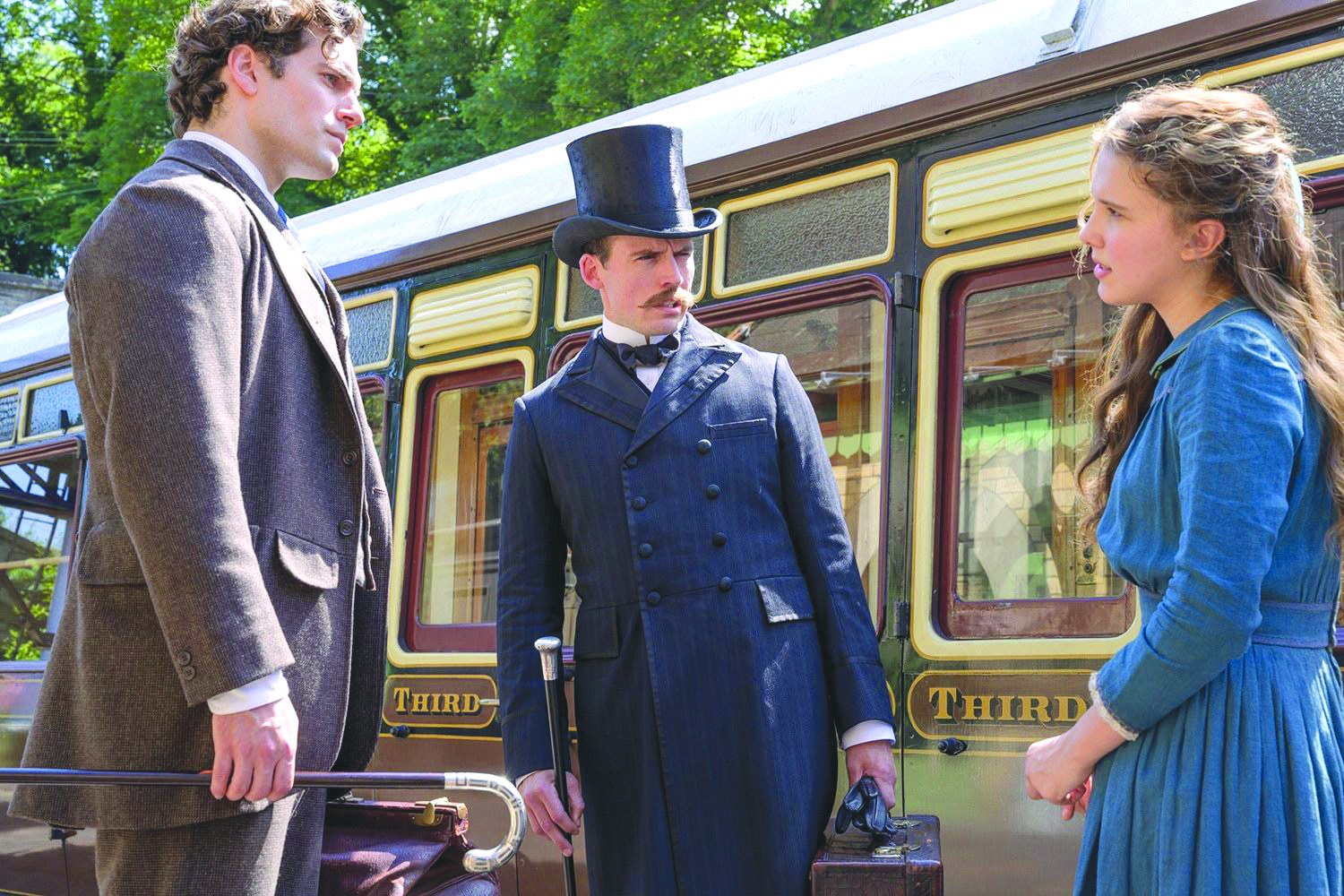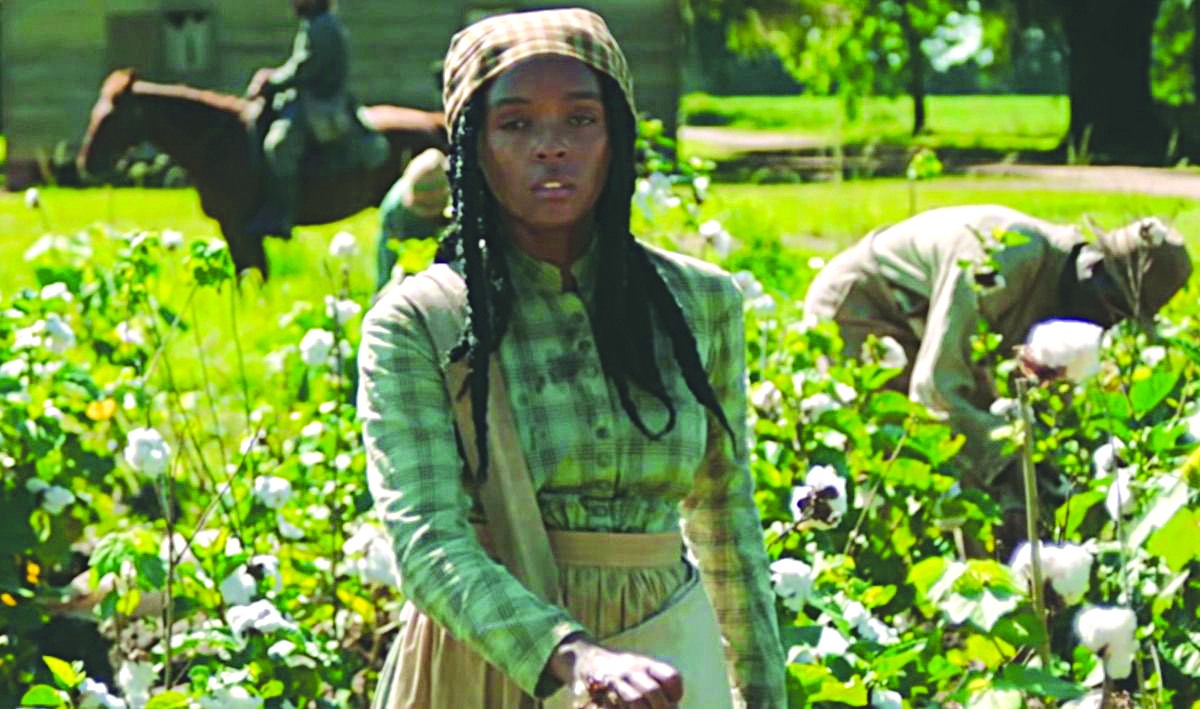Aaron Sorkin mixes a courtroom drama with the politics of the late 1960s in The Trial of the Chicago 7, a movie about that real-life case that is basically what you think it will be based on those ingredients.
Most of the movie takes place in 1969 during the trial itself with flashbacks to the events at the Democratic convention in 1968 that led to the indictment of eight men for conspiracy and other charges related to clashes between protesters and police. Those men are, roughly in order of movie importance: Bobby Seale (Yahya Abdul-Mateen II), Abby Hoffman (Sacha Baron Cohen), Tom Hayden (Eddie Redmayne), Rennie Davis (Alex Sharp), Jerry Rubin (Jeremy Strong), David Dellinger (John Carroll Lynch) and, serving almost just as comic relief here, John Froines (Danny Flaherty) and Lee Weiner (Noah Robbins). During the trial, Seale’s case is severed from the group’s and a mistrial is declared for him on those charges; in the movie (though not exactly so in real life, according to assorted “what’s fact or fiction” articles about this movie) this comes in part because the U.S. Attorney leading the case, Richard Schultz (Joseph Gordon-Levitt), is appalled by Judge Julius Hoffman’s (Frank Langella) racist and violent treatment of Seale. The reluctant antagonist with a country-over-party sense of decency may be dramatic license but it definitely feels on-brand for Aaron Sorkin.
The other seven men have as their lawyers Leonard Weinglass (Ben Shenkman) and William Kuntsler (Mark Rylance). And let’s stop right here to talk about this year’s Oscar race (if there are, in fact, Oscars for 2020). I feel like any discussion of this movie and its Oscar chances has to build its case on Mark Rylance playing what feels like another familiar Sorkin character: the wise, world-weary man who nonetheless has been able to hang on to his sense of justice and morality. Those characters can be a lot but Rylance is able to make him a real person, a professional doing a job but also a person fighting for a set of principles and doing so in the real world. I don’t know how well he brings to life the real person that was William Kuntsler — I admit I know of most of these people in an extremely second-hand fashion. But Rylance brings to life a real person.
I feel like the other big performances here will be Cohen and Redmayne and to a lesser degree Lynch and Strong. My favorite of the group might be Lynch. Cohen and Strong are, I think, supposed to be the likeable showmen hiding razor-sharp minds, and Redmayne plays an earnest goodie-two-shoes who is nonetheless willing to put all on the line. And it’s all perfectly fine, was my response. It’s all acceptable, above average even, but more stagey than Rylance or Lynch.
Sorkin, who writes and directs here, knows how to construct a good courtroom scene, he of “you can’t handle the truth” fame. We get a couple of courtroom fireworks moments that work even when they verge on the hokey. He also does, as he often does, a good job constructing compelling quiet-conversation-between-two-characters scenes. He has always been good at having characters mix the on-task business of whatever’s happening in a plot with just shooting the breeze and displaying personality, and we get some of that here, particularly in scenes with Rylance or with scenes between Cohen and Strong and Redmayne and Sharp.
There are less successful scenes where characters speechify at each other, explaining “the Left” or “the War” or whatever to each other, and these scenes left me feeling like I needed a break.
Other Sorkin things that drove me a little nuts: women! Everything to do with the (all minor) female characters feels like he just sprinkled some West Wing secretaries throughout the movie. Look, I know this is history and you can’t just fan-fiction Ruth Bader Ginsburg into the trial and so your options are limited for how to have female characters. But still. This approach, with savvy helpmates always around for a quip and some sympathy, just wore me out.
If I had to zero in on the point of this movie for Sorkin, it would be in a line said by Abby Hoffman: “I think the institutions of our democracy are wonderful things that right now are populated by some terrible people.” This and a broad-survey look at that particular fight against that particular generation’s “terrible people” in the “institutions of our democracy” are as close as Sorkin gets to making any kind of statement about the modern era, which is also fine. On balance, if you enjoy history at all or Sorkin at all (even if you’re more of a fair-weather Sorkin fan), I think The Trial of the Chicago 7 is worth a watch — especially since it’s on Netflix and no extra effort to seek it out. B
Rated R for language throughout, some violence, bloody images and drug use, according to the MPA on filmratings.com. Written and directed by Aaron Sorkin, The Trial of the Chicago 7 is two hours and nine minutes long and is available on Netflix.






